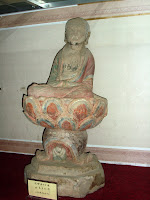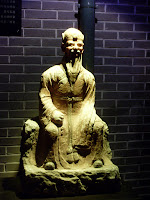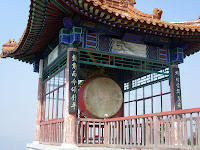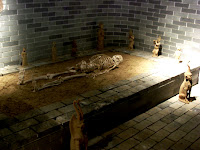As we left Qingyang it was evident that while a lot of development is underway, a lot of maintenance is required also. Nevertheless, the people express the same warmth and friendliness seen before and there is certainly a bright future for this city. The culture is alive and well, the workers diligent and the agriculture florishing. Farewell Qingyang.
Longdong Ancient Carved Stone Art Museum is just 
The pieces include numerous carvings of Buddha -- 
Zhou is thought to be the founder of Agriculture
Qingcheng Museum is a very new museum, opening just months before our visit. 
and the tomb of a General. It was absolutely stunning to look around.
Qingcheng was a quite tidy city with a much smaller population than any city we'd visited so far, with only 300,000 people. It is encompassed by two rivers, otherwise appearing quite dry in comparison.
The rest of the day was spent in a bus, returning to Lanzhou. It was good to return 'home'!
Day 18: Stone Art Museum and Qingcheng
Subscribe to:
Post Comments (Atom)



0 comments:
Post a Comment